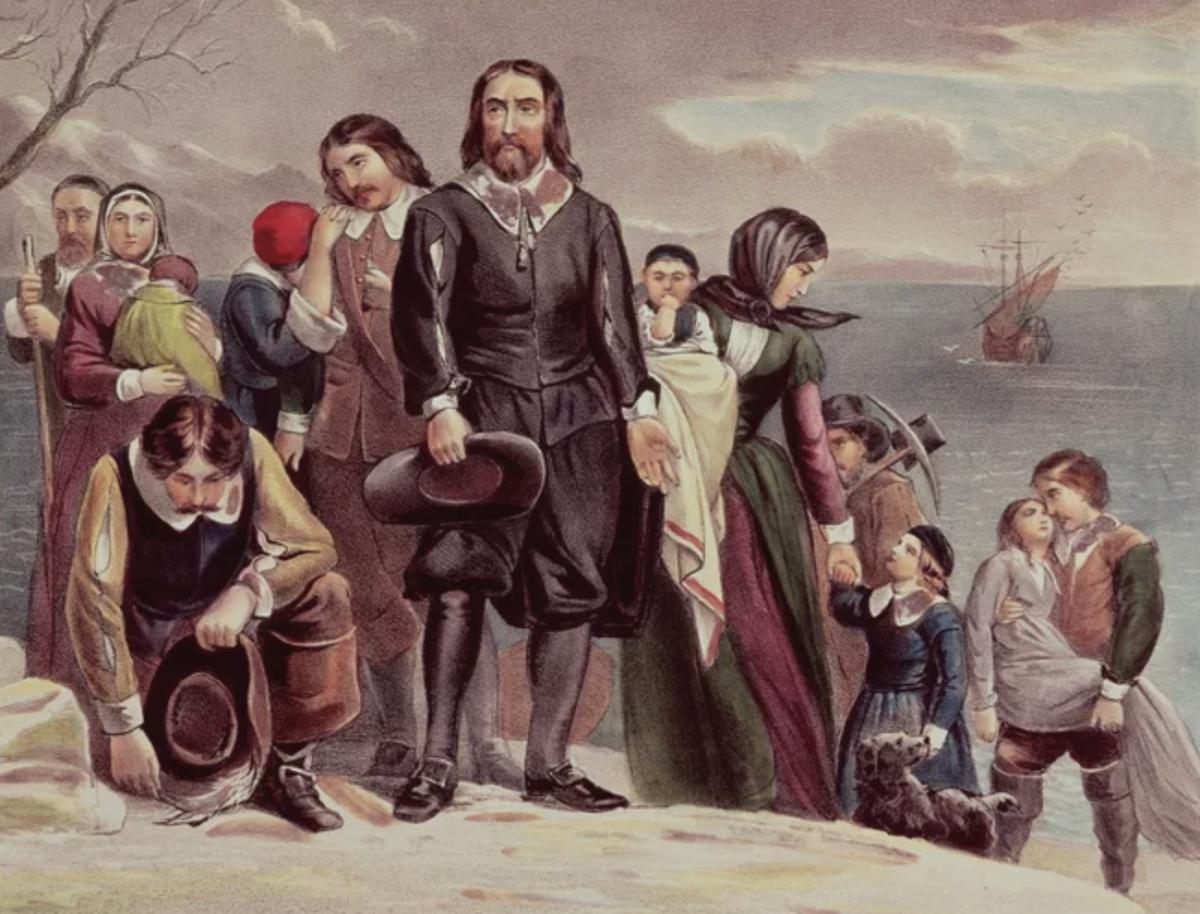Author’s note: “After I saw images of the small Hebrew dictionary William Bradford created in his notebook, I was drawn to imagine his later life. And though the parallels may not seem obvious, I think of this as “a pandemic poem.” Just as Bradford looked for meaning in a time when he felt overcome by failure, I remember that first pandemic spring as a season of extraordinary beauty, when so many were simultaneously surrounded by uncertainty and loss.”
Editor’s note: William Bradford (1590 – 1657) is best known as the English Puritan separatist who emigrated to the Plymouth Colony aboard the Mayflower in 1620. He was the founder of the Plymouth Colony, the first permanent colony in New England, and its governor for thirty years. The Colony is referred to as the site of the “first Thanksgiving” in 1621.
At the End of His Life,
William Bradford Studied Hebrew
**********In fears and wants, through weal and woe,
**********A pilgrim, passed I to and fro…
Because he was an old man and because
he needed meaning—
and because he saw those early months again:
how they’d failed, how they’d placed
the dead, the dying, out among the black trees,
bodies arranged like false sentinels,
signs of health they did not have—
icy glaze that covered them.
Those bones that were not counted did not rise.
those days were ceaseless prayers unsaid!
A dark unsettling. And the Lord had said,
Your carcasses shall fall in this wilderness—
as if the world were water with no cup
to hold it—
as if the light that bends toward light
were lost—
So Abraham must have felt
that same distance when he heeded
God, when he climbed Moriah,
ordered to commit
what couldn’t be imagined—
when he called Isaac the boy—
and not my son—
The Lord had said they should desire
a better country. And so they had. And so
they’d come, by faith, to follow Him—
and yet, the Lord had also said
Your carcasses shall fall in this wilderness—
__________
But even amid disaster, we know
spring still arrives. Here, the iris,
butter-yellow against the wall.
Here, the redbud like a line
of brilliant lights that flame the yard.
And was it so for Bradford, too?
His days had changed—
he sailed into a last season.
A man who tried sought solace
at the end. And so, he’d set himself the task
of learning something
of that most holy tongue—
listening for the least word—
yearning to discern how the angels spake.
The very letters touched his ragged heart.
Your carcasses shall fall—
__________
though now, the undeciphered world is lit for him,
however briefly—
language looking for its final form—
illuminated, now, in the widening dark
where clouds above the sea shape another country
as evening casts its shadow just outside.
⧫
Margaret Mackinnon’s poem, from the 14th annual Delmarva Review, has been nominated for a Pushcart Prize. Her poetry has appeared in Poetry, Image, Hampden-Sydney Poetry Review, and other journals. Her first book, The Invented Child, won the 2011 Gerald Cable Book Award and the 2014 Literary Award in Poetry from the Library of Virginia. Naming the Natural World received the 2017 Sow’s Ear Poetry Review chapbook award. She and her family live in Richmond, Virginia.
Delmarva Review, Volume 14, is an independent collection of the finest new poetry, fiction, and nonfiction. In this, its largest edition, editors selected the writing of seventy authors that stood out from thousands of submissions during the year. The review is available in print and digital editions from Amazon.com and other major online booksellers, as well as from regional specialty bookstores.
The journal is a 501(c)3 nonprofit literary publication with funding support from individual tax-deductible contributions, sales, and a public grant from Talbot Arts with revenues from the Maryland State Arts Council.
# # #



Write a Letter to the Editor on this Article
We encourage readers to offer their point of view on this article by submitting the following form. Editing is sometimes necessary and is done at the discretion of the editorial staff.